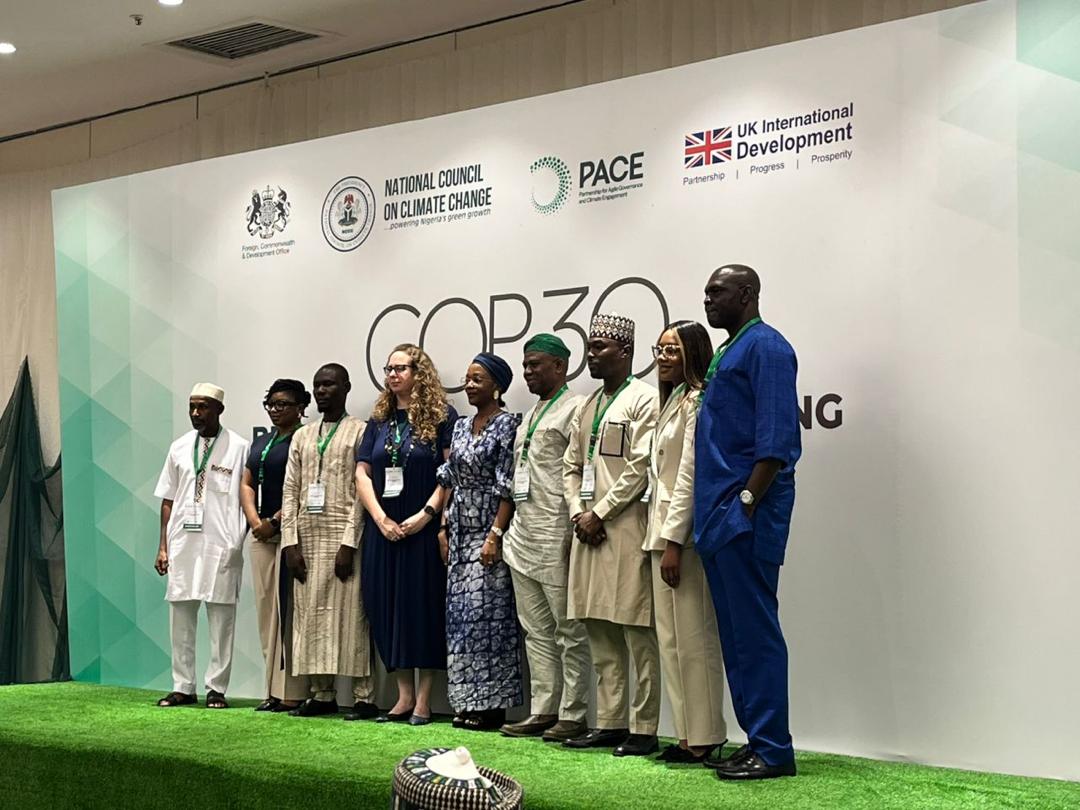The United Kingdom on Tuesday (11th November) launched a new phase of its climate partnership with Nigeria, unveiling a strengthened package of technical and institutional support designed to accelerate the country’s transition toward a low-carbon and climate-resilient future. The announcement, made at COP30 in Belém, marks the start of Phase Two of the Nigeria–UK Partnering for Accelerated Climate Transitions (UK PACT) Fund, a programme aimed at helping Nigeria meet its Nationally Determined Contributions and long-term target of net-zero emissions by 2060.

The expansion reflects a strategic shift in climate cooperation: moving beyond broad commitments to interventions that embed technical expertise into national institutions and unlock investment at the sectors driving Nigeria’s emissions. For a country grappling with persistent power deficits, rising climate vulnerability and the urgency of diversifying its energy mix, this new phase focuses on the practical mechanics of transition, from grid reform and clean-energy deployment to data systems and policymaking capacity.
Launched in 2021, the Nigeria–UK PACT Fund forms part of a broader programme operating across 14 countries in Africa, Asia and Latin America. Managed through the UK’s International Climate Finance framework, the initiative provides technical assistance, capacity building and knowledge exchange tailored to country-specific climate goals. In Nigeria, the programme aligns with national instruments such as the Climate Change Act, the Energy Transition Plan and the country’s NDCs, supporting reforms that cut across energy, governance and finance.
At COP30, the UK announced eight new technical assistance projects and five expert deployments for Phase Two. Collectively, they target two interconnected areas: accelerating clean-energy deployment and strengthening climate policy and governance.
Read also: New West Africa Sustainable Ocean Programme targets fisheries decline and blue economy development
Five clean-energy projects will focus on scaling decentralized renewable energy, enhancing the regulatory and technical capacity of energy institutions and creating conditions that attract private capital into clean technologies. With more than 85 million Nigerians lacking access to reliable electricity and mini-grids emerging as one of the fastest-growing solutions across the continent, decentralized renewables represent both a climate and development priority.
The projects are expected to support embedded generation pilots, unlock investment for small-scale hydropower in off-grid communities and reduce risk in renewable procurement, interventions that can help open an estimated US$8 billion in private investment opportunities within Nigeria’s power sector.
The governance and climate-policy component will support institutional reforms within agencies such as the National Council on Climate Change (NCCC), the Nigerian Electricity Regulatory Commission (NERC) and the Rural Electrification Agency (REA). These efforts include strengthening measurement, reporting and verification systems; improving evidence-based policy design; and building technical negotiation skills for international climate processes.
Nigeria’s ability to implement its NDCs hinges on accurate data and consistent cross-sector coordination, areas where institutional gaps have historically slowed progress and restricted access to global climate finance.
For African observers, the UK–Nigeria partnership illustrates a broader trend emerging at COP30: the increasing focus on delivery-oriented climate cooperation. Rather than focusing solely on finance pledges, development partners are beginning to engage directly with the operational systems, regulatory frameworks, data infrastructure, and sectoral institutions, that determine whether climate commitments translate into real emissions reductions. Nigeria, with the continent’s largest population, rising energy demand and significant mitigation potential, stands to shape regional progress if it can strengthen its institutional foundations.
The launch of Phase Two builds on the progress of the first phase, which supported reforms in climate governance, energy planning and financial mobilization. As Nigeria confronts growing climate pressures and energy insecurity, the success of this next phase will depend on sustained coordination between national institutions, development partners and the private sector.
For now, the new portfolio signals renewed international confidence that Nigeria can advance a more resilient and low-carbon development pathway, provided that technical and regulatory systems keep pace with the scale of its ambition.
Engage with us on LinkedIn: Africa Sustainability Matters
Engage with us on LinkedIn: Africa Sustainability Matters



